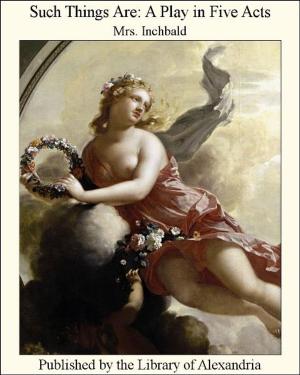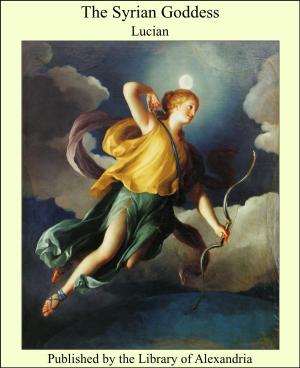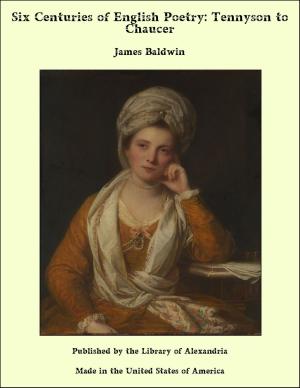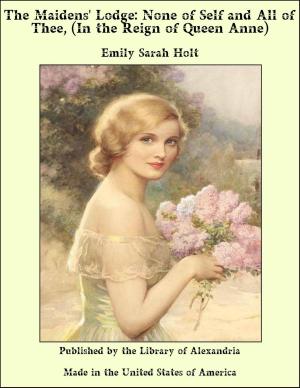Florence Nightingale to her Nurses: A Selection from Miss Nightingale's Addresses to Probationers and Nurses of the Nightingale School at St. Thomas's Hospital
Nonfiction, Religion & Spirituality, New Age, History, Fiction & Literature| Author: | Florence Nightingale | ISBN: | 9781465609373 |
| Publisher: | Library of Alexandria | Publication: | March 8, 2015 |
| Imprint: | Language: | English |
| Author: | Florence Nightingale |
| ISBN: | 9781465609373 |
| Publisher: | Library of Alexandria |
| Publication: | March 8, 2015 |
| Imprint: | |
| Language: | English |
Between 1872 and 1900 Miss Nightingale used, when she was able, to send an annual letter or address to the probationer-nurses of the Nightingale School at St. Thomas’ Hospital, “and the nurses who have been trained there.” These addresses were usually read aloud by Sir Harry Verney, the chairman of the Nightingale Fund, in the presence of the probationers and nurses, and a printed copy or a lithographed facsimile of the manuscript was given to each of the nurses present, “for private use only.” A few also were written for the Nightingale Nurses serving in Edinburgh. The letters were not meant for publication, and indeed are hardly suitable to be printed as a whole as there is naturally a good deal of repetition in them. Since Miss Nightingale’s death, however, heads of nursing institutions and others have asked for copies of the addresses to be read or given to nurses, and her family hope that the publication of a selection may do something to carry further the intention with which they were originally written. Perhaps, too, not only nurses, but others, may care to read some of these letters. There is a natural desire to understand the nature of a great man’s or woman’s influence, and we see in the addresses something at least of what constituted Miss Nightingale’s power. Her earnest care for the nurses, her intense desire that they should be “perfect,” speak in every line. They do not, of course, give full expression to the writer’s mind. They were written after she had reached middle age, as from a teacher of long and wide experience to pupils much younger than herself—pupils some of whom had had very little schooling and did not easily read or write. The want of even elementary education and of habits and traditions of discipline which grow in schools are difficulties less felt now than in 1872, when Miss Nightingale’s first letter to nurses was written. At that time it was necessary in addressing such an audience to write very simply, without learned allusions (though some such appear in disguise) and without too great severity and concentration of style. The familiar words of the Bible and hymns could appeal to the least learned among her hearers, and never lost their power with Miss Nightingale herself. But through the simple and popular style of the addresses something of a philosophical framework can be seen. When Miss Nightingale hopes that her nurses are a step further on the way to becoming “perfect as our Father in Heaven is perfect,” she has in mind the conception she had formed of a moral government of the world in which science, activity, and religion were one. In her unpublished writings these ideas are dwelt on again and again.
Between 1872 and 1900 Miss Nightingale used, when she was able, to send an annual letter or address to the probationer-nurses of the Nightingale School at St. Thomas’ Hospital, “and the nurses who have been trained there.” These addresses were usually read aloud by Sir Harry Verney, the chairman of the Nightingale Fund, in the presence of the probationers and nurses, and a printed copy or a lithographed facsimile of the manuscript was given to each of the nurses present, “for private use only.” A few also were written for the Nightingale Nurses serving in Edinburgh. The letters were not meant for publication, and indeed are hardly suitable to be printed as a whole as there is naturally a good deal of repetition in them. Since Miss Nightingale’s death, however, heads of nursing institutions and others have asked for copies of the addresses to be read or given to nurses, and her family hope that the publication of a selection may do something to carry further the intention with which they were originally written. Perhaps, too, not only nurses, but others, may care to read some of these letters. There is a natural desire to understand the nature of a great man’s or woman’s influence, and we see in the addresses something at least of what constituted Miss Nightingale’s power. Her earnest care for the nurses, her intense desire that they should be “perfect,” speak in every line. They do not, of course, give full expression to the writer’s mind. They were written after she had reached middle age, as from a teacher of long and wide experience to pupils much younger than herself—pupils some of whom had had very little schooling and did not easily read or write. The want of even elementary education and of habits and traditions of discipline which grow in schools are difficulties less felt now than in 1872, when Miss Nightingale’s first letter to nurses was written. At that time it was necessary in addressing such an audience to write very simply, without learned allusions (though some such appear in disguise) and without too great severity and concentration of style. The familiar words of the Bible and hymns could appeal to the least learned among her hearers, and never lost their power with Miss Nightingale herself. But through the simple and popular style of the addresses something of a philosophical framework can be seen. When Miss Nightingale hopes that her nurses are a step further on the way to becoming “perfect as our Father in Heaven is perfect,” she has in mind the conception she had formed of a moral government of the world in which science, activity, and religion were one. In her unpublished writings these ideas are dwelt on again and again.















